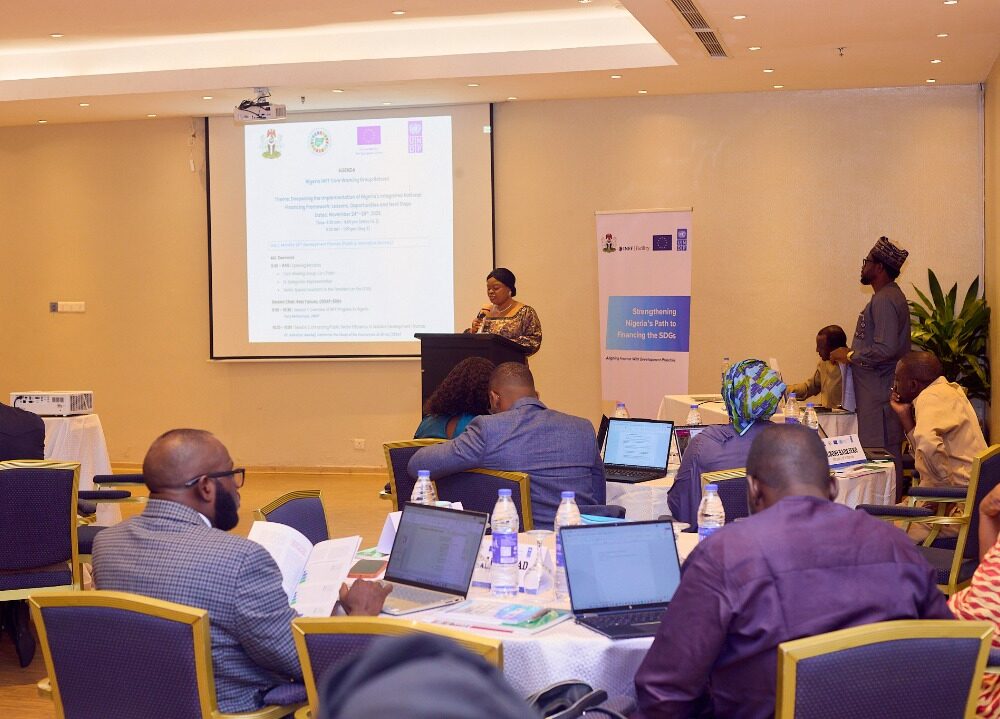In a professionally unusual editorial in response to Punch Newspaper’s editorial, the Daily Trust said today that “PUNCH went overboard” in describing “an elected government as a ‘regime’ and to refuse to recognize the president by his statutory title.” It characterizes this as “an attempt to delegitimise an elected president and the government he heads.”
Daily Trust’s editorial is at once hypocritical and unprofessional. Let’s start with hypocrisy. Daily Trust doesn’t even pretend to be neutral when it comes to Buhari. It’s unapologetically in bed with his regime. This is a newspaper that stopped my column simply because it said I’d been abidingly critical of Buhari.
In private conversations, both Kabiru Yusuf, the paper’s chairman, and Mannir Dan-Ali, its Editor-in-Chief, admitted to the facticity and unimpeachability of my critiques of the regime. Kabiru even once called me the “conscience of the nation” in 2016 after the presidency was compelled to officially respond to my column on the colossal costs of Buhari’s London medical trips.
Yet my column was stopped for no other reason than that I was too consistently censorious of the Buhari regime. Before then, I had received several official communications from the Editor-in-Chief subtly and not too subtly importuning me to either stop writing about Buhari or to “tone down” the stridency of my critiques of his regime. That’s a worse betrayal of the basic principles of journalistic integrity than Daily Trust is incorrectly accusing Punch of.
And I am not alone. Every columnist in Trust has been told, often officially, sometimes impliedly, and at other times explicitly, what to write and how to write—often on issues that involve Buhari. The paper has also had occasions to refuse to publish columns that it considered too critical of the Buhari regime. Let me give just one recent example.
Sonala Olumhense is a storied, fearless, evenhanded, widely read syndicated columnist whose Sunday column Daily Trust has been publishing since Jonathan was in power, perhaps because he used to be very critical of Goodluck Jonathan even though they’re both from the same geo-cultural region. (In other words, Daily Trust likes people who’re critical of “their own,” but resented me for being critical of “my own.” What’s the definition of hypocrisy?)
Olumhense’s December 1 column titled “As nepotism soldiers on” only appeared in the Punch; Daily Trust declined to publish it because it’s a witheringly searing critique of Buhari’s growing, unprecedented nepotism. Trust couldn’t stomach it. This has happened to other columnists, who now self-censor their thoughts about Buhari.
A newspaper with such compromised standards has no moral right to preach to another paper about professional journalistic neutrality—or about journalism at all. Daily Trust’s practice of telling its columnists what to write and how to write is one of the most audaciously egregious vandalism of journalistic ethics I’ve ever encountered anywhere in the world.
In any case, Punch’s editorial decision to prefix “Major General” to Buhari’s name and to call the government he heads a “regime” is merely a stylistic choice, which newspapers all over the world do periodically. The Associated Press, the New York Times, the Washington Post, etc. update their style guides every year–and publish the changes–in response to changes in language use and in the political environment. It’s a newspaper’s inviolable prerogative to change its editorial style.
There’s no where in the Punch editorial that the paper even implied that it won’t be fair in its reporting on the Buhari regime.
It’s customary in journalism to distinguish between news and views. Although the two words rhyme, they couldn’t be more different in meaning. Daily Trust doesn’t even have enough professional maturity to respect the right of its columnists to express views that depart from those of its owners and shareholders.
And how does a newspaper’s stylistic choice to call attention to the habitual subversion of democratic ethos by a government, which Trust itself grudgingly admitted to, “delegitimize” the government? That’s woolly reasoning. A newspaper has no judicial power to confer or deny legitimacy to any government. Buhari won’t cease to be “president” because Punch calls him a Major General. Nor will Nigerians stop to recognize the government he pretends to head because Punch calls it a “regime.”
Punch merely used its symbolic power to dramatically call attention to Buhari’s serial perversion and rape of justice. Instead of writing an editorial about another newspaper’s editorial, why not write your own independent editorial to lend symbolic authority to your favorite tyrant’s autocracy? Punch isn’t THE Newspaper of Nigeria; it’s one of several newspapers in the country. Why fixate on what it chooses to do with its symbolic resources?
It bespeaks crippling professional insecurity, even inferiority complex, for one newspaper to take another’s editorial seriously enough to respond to it in an editorial.





